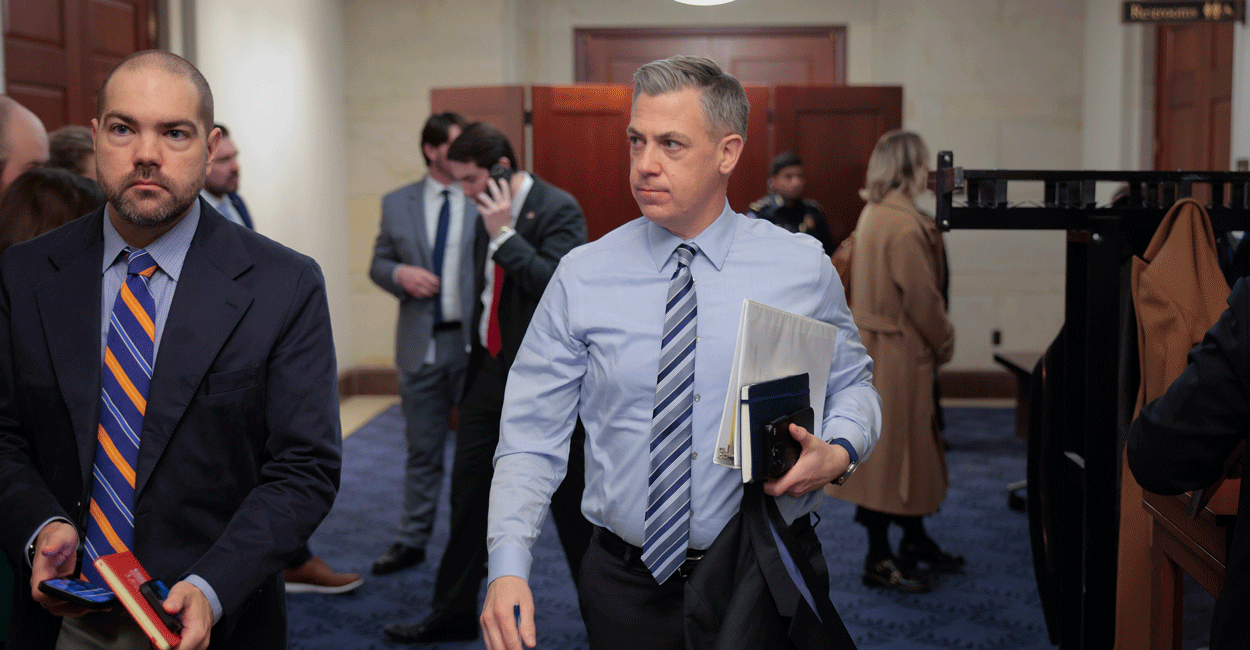Trump administration claims link between autism and Tylenol, greenlights remedy


President Donald Trump noted in his order establishing the Make America Healthy Again Commission that "autism spectrum disorder now affects 1 in 36 children in the United States — a staggering increase from rates of 1 to 4 out of 10,000 children identified with the condition during the 1980s."
Live Your Best Retirement
Fun • Funds • Fitness • Freedom
The MAHA Commission's chairman, Health and Human Services Secretary Robert F. Kennedy Jr., subsequently indicated that Centers for Disease Control and Prevention data show that the rate of autism among American children has gotten even worse.
"The autism epidemic is running rampant," Kennedy said. "One in 31 American children born in 2014 are disabled by autism. That's up significantly from two years earlier and nearly five times higher than when the CDC first started running autism surveys in children born in 1992. Prevalence for boys is an astounding 1 in 20, and in California it's 1 in 12.5."
'So taking Tylenol is not good.'
Kennedy promised during a Cabinet meeting in April that "by September, we will know what has caused the autism epidemic, and we'll be able to eliminate those exposures" — an ambition the Autism Society of America said was "harmful, misleading, and unrealistic."
Despite pre-emptive criticism by medical establishmentarians and the protest of the interim CEO of Tylenol maker Kenvue, Kennedy joined President Donald Trump and Centers for Medicare and Medicaid Services Administrator Mehmet Oz on Monday in formally identifying one of the alleged drivers behind the rise in American autism: the use of acetaminophen, the active ingredient in Tylenol, during pregnancy.
Kennedy, who indicated that his agency is also looking closely at the potential link between vaccines and autism, noted, "The FDA is responding to clinical and laboratory studies that suggest a potential association between acetaminophen use during pregnancy and adverse neurological outcomes, including later diagnoses for ADHD and autism."
RELATED: Trump's health revolution: RFK Jr. takes aim at chemicals, junk food, and overmedication
 IM WATSON/AFP via Getty Images
IM WATSON/AFP via Getty Images
The health secretary indicated that the U.S. Food and Drug Administration kicked off the process on Monday for a label change for acetaminophen to indicate that the use of the drug by pregnant women may be associated with an increased risk of neurological conditions like autism and ADHD in children.
The Department of Health and Human Services will also launch a nationwide public information campaign to alert parents and families to the possible risks of taking Tylenol during pregnancy, Kennedy said.
"The safety of acetaminophen against the risk of neurodevelopmental disorders in young children has never been validated," Kennedy said. "Prudent medicine therefore suggests caution in acetaminophen use by young children, especially since strong evidence also has associated it with liver toxicity. Some studies have also found the use of acetaminophen in children can potentially prolong viral illnesses."
"So taking Tylenol is not good," Trump said. "I'll say it: It's not good."
White House spokesman Kush Desai said in a statement to Blaze News, "President Trump pledged to address America's rising rate of autism, and to do so with gold-standard science. Today's announcement will make historic progress on both commitments."
Ahead of the announcement, a spokesperson for Kenvue — whose company stock price took a nosedive on Monday — told Blaze News, "We believe independent, sound science clearly shows that taking acetaminophen does not cause autism. We strongly disagree with any suggestion otherwise and are deeply concerned with the health risk this poses for expecting mothers."
The company spokesperson suggested further in the statement: "The facts are that over a decade of rigorous research, endorsed by leading medical professionals and global health regulators, confirms there is no credible evidence linking acetaminophen to autism."
Christopher Zahn, chief of clinical practice at the American College of Obstetricians and Gynecologists, similarly suggested in a statement to Blaze News prior to the Trump administration's announcement regarding autism that "there is no clear evidence that proves a direct relationship between the prudent use of acetaminophen during pregnancy and fetal developmental issues."
'Failure to implement change in medical practice currently constitutes disregard for the ample evidence of harm.'
While Kenvue, the ACOG, and other outfits have suggested that there is no causal link between acetaminophen use and autism, there is at the very least an apparent association.
In a National Institutes of Health-funded 2019 study published in the journal JAMA Psychiatry, researchers led by Dr. Xiaobin Wang of the Johns Hopkins Bloomberg School of Public Health collected umbilical cord blood from 996 births and measured the amount of acetaminophen and two of its byproducts in each sample.
The researchers found that "cord biomarkers of fetal exposure to acetaminophen were associated with significantly increased risk of childhood ADHD and ASD in a dose-response fashion."
Acetaminophen, often sold under the brand Tylenol in the United States and Canada, is the most common over-the-counter pain and fever medication used during pregnancy and is reportedly used by well over 50% of pregnant women worldwide.
A 2023 scientific review published in the Swiss peer-reviewed journal Children concluded "without reasonable doubt and with no evidence to the contrary that exposure of susceptible babies and children to acetaminophen (paracetamol) induces many, if not most, cases of autism spectrum disorder."
The review, led by Dr. William Parker, CEO of WPLab and visiting scholar at the University of North Carolina at Chapel Hill, also concluded that "the very early postpartum period poses the greatest risk for acetaminophen-induced ASD, and that nearly ubiquitous use of acetaminophen during early development could conceivably be responsible for the induction in the vast majority, perhaps 90% or more, of all cases of ASD."
When asked about Kenvue's apparent denial of a causal link between acetaminophen and autism, Dr. Parker told Blaze News:
Technically, the company is correct. Acetaminophen alone absolutely does NOT cause autism. Susceptibility to injury is absolutely required for acetaminophen to induce autism. Without susceptibility, which is caused by a very complex mixture of genetics, epigenetics, and environment, acetaminophen cannot induce autism. Almost all scientists working in the field are aware to some extent of the complex mix of genetic and environmental factors involved in the induction of autism.
In his response, Dr. Parker also referenced a 2024 study that he worked on which was published in the journal Clinical and Experimental Pediatrics. The study noted that "careful examination reveals no valid objections to the conclusion that early exposure to acetaminophen causes neurodevelopmental injury in susceptible babies and children."
"Changes in medical practice should be implemented that effectively weigh the risks and benefits of neonatal and pediatric APAP use," the study reads. "Failure to implement change in medical practice currently constitutes disregard for the ample evidence of harm despite the absence of any valid rationale for the view that APAP might be safe for neurodevelopment."
On the matter of whether health officials should warn pregnant mothers about the increased risk of autism in their children associated with acetaminophen use, Dr. Parker noted that the "answer to this question is nuanced."
"Evidence indicates that heavy use of acetaminophen during pregnancy may lead to neurodevelopmental problems, including autism and ADHD," Dr. Parker said. "Heavy use is often associated with chronic pain management. Much less is known about the cost-to-benefit ratio of treating an occasional fever during pregnancy. Such treatments may have a net benefit for the fetus, although more work needs to be done to probe this topic."
Dr. Parker emphasized to Blaze News that "we are absolutely NOT blaming parents and physicians for this. It is not a mistake for us to do what we are told is best for our children. The science is all about preventing injury in the future, not blaming people who are blameless."
In an NIH-supported study published in August in the peer-reviewed medical journal Environmental Health, researchers from the Harvard T.H. Chan School of Public Health, University of California Los Angeles' School of Public Health, and the Icahn School of Medicine at Mount Sinai systematically reviewed 46 "well-designed" studies incorporating data from over 100,000 participants regarding the relationship between neurodevelopmental disorders, including autism and attention-deficit/hyperactivity disorder, and prenatal exposure to acetaminophen.
The researchers found that 27 of the studies reported "significant links" between acetaminophen exposure in the womb and NDDs and noted that "higher-quality studies were more likely to show positive associations."
"Overall, the majority of the studies reported positive associations of prenatal acetaminophen use with ADHD, ASD, or NDDs in offspring, with risk-of-bias and strength-of-evidence ratings informing the overall synthesis," the study reads.
When specifically evaluating the studies pertaining to Tylenol use and autism in children, the researchers found "strong evidence of a relationship between prenatal acetaminophen use and increased risk of ASD in children."
Dr. Andrea Baccarelli, a co-author of the study and a professor of environmental health at the Harvard T.H. Chan School of Public Health, noted in a statement obtained by Blaze News that he believes "caution about acetaminophen use during pregnancy — especially heavy or prolonged use — is warranted."
Dr. Baccarelli and his colleagues recommended a "balanced approach" regarding acetaminophen use during pregnancy — a recommendation now echoed by the Trump administration: "Patients who need fever or pain reduction during pregnancy should take the lowest effective dose of acetaminophen, for the shortest possible duration, after consultation with their physician about their individual risk-benefit calculation."
Zahn of the ACOG was among those who railed against Baccarelli's systematic review.
RELATED: One for the ladies: Educate yourself about the risks of hormonal birth control
 Photo by SAUL LOEB/AFP via Getty Images
Photo by SAUL LOEB/AFP via Getty Images
"Failing to treat medical conditions that warrant the use of acetaminophen is, at present, understood to be far more dangerous than theoretical concerns based on inconclusive reviews of conflicting science," Zahn said in a statement to Blaze News. "Maternal fever, diagnosis of severe pre-eclampsia, and appropriate pain control are all managed with the therapeutic use of acetaminophen and can create severe morbidity and mortality for maternal and child health if they are mismanaged based on improper clinical recommendations."
The Society for Maternal-Fetal Medicine also rushed to endorse Tylenol use during pregnancy following the publication of the damning review, noting that it "continues to advise physicians and patients that acetaminophen is an appropriate medication to treat pain and fever during pregnancy."
"Ideally, you don't take it at all," Trump said during the press conference on Monday. "If you can't tough it out or there's a problem, you're going to end up doing it."
In addition to calling out acetaminophen for its alleged role in the explosion of autism cases, Kennedy identified leucovorin, which is also known as folinic acid, as a viable autism treatment.
Leucovorin is already used to treat cerebral folate deficiency, which has been associated with autism.
The same year that a review in the Journal of Personalized Medicine noted that leucovorin "is associated with improvements in core and associated symptoms of ASD and appears safe and generally well-tolerated," a double-blind, placebo-controlled trial was registered. The results of that trial, published last year in the European Journal of Pediatrics, were promising.
Researchers concluded that oral folinic acid supplementation "is effective and safe in improving ASD symptoms, with more pronounced benefits in children with high titers of folate receptor autoantibodies."
FDA Commissioner Dr. Marty Makary indicated that his agency has initiated the approval of leucovorin calcium tablets for patients with cerebral folate deficiency.
"We have witnessed a tragic four-fold increase in autism over two decades," Makary said. "Children are suffering and deserve access to potential treatments that have shown promise. We are using gold standard science and common sense to deliver for the American people."
The biopharmaceutical company GSK promptly noted that it will submit a supplemental New Drug Application for leucovorin to update the label to reflect that it can be used to treat cerebral folate deficiency.
By addressing one of the alleged root causes of autism and mainstreaming a treatment might not only help American families tackle the disorder but spare them from what is, for many, a crushing burden.
Upwards of $60.9 billion are reportedly spent each year on children with ASD, and intensive behavioral interventions can cost anywhere from $40,000 to $60,000 per child annually.
Blaze News has reached out to the American Pediatric Society and to the HHS for comment.
Like Blaze News? Bypass the censors, sign up for our newsletters, and get stories like this direct to your inbox. Sign up here!
Originally Published at Daily Wire, Daily Signal, or The Blaze
What's Your Reaction?
 Like
0
Like
0
 Dislike
0
Dislike
0
 Love
0
Love
0
 Funny
0
Funny
0
 Angry
0
Angry
0
 Sad
0
Sad
0
 Wow
0
Wow
0













































































